Effects of Substrate Concentration on Debranched Recrystallized Starch from Three Different Sources
-
摘要: 以三种不同来源淀粉(普通玉米淀粉、木薯淀粉、豌豆淀粉)为研究对象,对样品进行脱支重结晶处理,分析底物浓度对三类脱支重结晶淀粉的形态、大小、结晶结构、热性质和凝胶性质等功能特性的影响。结果表明,原淀粉表面光滑无孔洞,脱支重结晶淀粉完整性均被破坏且受浓度影响不明显;粒径随底物浓度增加而增大;相对结晶度随底物浓度增加呈先减小后增大的趋势;与原淀粉相比,三种改性淀粉的储能模量(G')高于损耗模量(G"),凝胶强度增强,热稳定性和有序度(DO)均下降而双螺旋度(DD)均上升。改性玉米淀粉和木薯淀粉在较低底物浓度(6%、10%)表现出较弱的粘弹性,而豌豆淀粉在中等底物浓度(10%、14%)表现为较高的粘弹性;DD值随底物浓度增加而减小(底物浓度为18%样品除外);热稳定性随底物浓度增大有所改善,但仍低于原淀粉。由此可见,调节底物浓度可以选择性地获取理想的脱支重结晶淀粉,这将为不同品种淀粉的综合利用提供思路。Abstract: Three kinds of debranched recrystallized starches from different sources (common corn starch, tapioca starch and pea starch) were used to investigate the effect of substrate concentration on the morphology, size, crystal structure, thermal properties, gel properties and other functional properties. The results showed that the surface of native starch was smooth without pores, and the integrity of debranched recrystallized starches were all destroyed and not significantly affected by concentration. The particle size increased with the increase of substrate concentration. The relative crystallinity of three types of debranched recrystallized starches decreased and then increased with the increase of substrate concentration. Compared with native starch, the storage modulus (G') of the three modified starches was higher than the loss modulus (G"), the gel strength was enhanced, and the thermal stability and degree of order (DO) all decreased while the degree of double helicity (DD) increased. The modified corn starch and tapioca starch showed weak viscoelasticity at lower substrate concentration (6%, 10%), whereas pea starch showed higher viscoelasticity at medium substrate concentration (10%, 14%). The value of DD decreased with increasing substrate concentration (except for 18% sample with substrate concentration). The thermal stability improved with the increase of substrate concentration but was still lower than that of the native starch. It follows that the ideal debranched recrystallized starches could be obtained selectively by adjusting the substrate concentration, which will provide ideas for the integrated utilization of different kinds of starches.
-
Keywords:
- corn starch /
- tapioca starch /
- pea starch /
- pullulanase /
- debranching /
- recrystallization
-
淀粉是一种天然高分子碳水化合物[1],其主要由两种多糖成分组成,即直链淀粉和支链淀粉,其中直链淀粉主要是由α-(1→4)-D-葡聚糖组成的长线性结构,支链淀粉是高度分支化的,通常具有较大的分子量[2],主链及分支皆为α-1,4糖苷键,分支点则以α-1,6糖苷键连接,其平均分支链长约为18~24个葡萄糖单元[3-4]。淀粉的直/支比例因来源不同而差异显著,作为产量仅次于纤维素的第二大可再生资源,其按来源主要可分为谷类淀粉、薯类淀粉和豆类淀粉,分别以玉米淀粉、木薯淀粉和豌豆淀粉为主[5]。从植物中提取的淀粉称为天然淀粉,而经过转化(生物、化学、物理)的淀粉称为变性淀粉[6]。而天然淀粉由于回生、脱水、较低的耐热性和抗剪切性,以及在不同温度下的不稳定性,限制了其在食品工业中的应用[7],因此,为了克服这些缺点并赋予其某些特性,对其进行改性处理,主要改性方法有酶法改性、物理改性和化学改性,但化学改性存在潜在的毒性,故本研究选用压热与酶解相结合的改性方式,通过压热处理使淀粉糊化并使其氢键断开,双螺旋结构打开,使淀粉颗粒从有序变为无序,再经由普鲁兰酶断开其α-1,6糖苷键,酶解处理产生的线性短链赋予脱支淀粉更高的流动性,从而促进了分子的排列和聚集,凝胶网络和晶体结构的形成[8]。
在以往的研究中淀粉的改性带来了显著的附加值。Miao等[9]研究了脱支时间及酶浓度对糯玉米淀粉消化性能的影响,发现酶浓度越高,脱支时间越短,糊化淀粉的慢消化淀粉(SDS)含量越高;Sureeporn等[10]利用双水热处理改善脱支重结晶木薯淀粉结构,发现水热处理样品的相对结晶度、熔融温度和抗性淀粉(RS)含量均增加;Ma等[11]研究了高压灭菌和α-淀粉酶水解等预处理对普鲁兰酶脱支豌豆淀粉修饰作用的影响,发现所有处理后的豌豆淀粉晶型都从C型转变为B型,且均会出现短程有序性增强的现象。近年来,前人广泛研究了酶以及重结晶条件等对单一淀粉的影响,而对于底物浓度对脱支重结晶淀粉的影响研究较少且不够系统深入,因此,本文通过设置不同梯度的底物浓度,来探究其对三种不同来源淀粉脱支重结晶特性的影响,从而拓宽不同来源淀粉的应用范围,同时为企业开发新型淀粉提供思路。
本文以玉米淀粉、木薯淀粉和豌豆淀粉为原料,经由脱支重结晶处理,对比分析三类淀粉在形态、大小、晶体结构、流变性能以及热性质等方面的差异,从而深入了解淀粉浓度及来源对变性淀粉自组装过程的影响,并为开发具有增强功能和营养特性的淀粉基食品提供基础。
1. 材料与方法
1.1 材料与仪器
普通玉米淀粉、普通木薯淀粉、普通豌豆淀粉 新乡良润全谷物食品有限公司;普鲁兰酶(1000 ASPU/mL) DANISCO(丹麦);所有分离所用有机试剂均为国产分析纯。
ALPHA 1-2LD冷冻干燥机 CHPIST公司;SU-1510扫描电子显微镜 日本日立公司;Epoch2酶标仪 美国伯腾仪器有限公司;ZWY-2102C恒温培养振荡器 上海智城分析仪器有限公司;IS50傅里叶红外光谱仪 美国尼高利公司;MARS60动态流变仪 德国哈克公司;Q50热重分析仪 TA instruments Waters LLC;BT 9300H激光粒度分布仪 丹乐百特仪器有限公司;DSC 3差式扫描量热仪 尤尼柯(上海)仪器有限公司;Ultima IV X-射线衍射仪 日本理学公司。
1.2 实验方法
1.2.1 样品的制备
样品的制备参考Sun和Flávia等[12-13]的方法并加以改进。称取适量的玉米淀粉、木薯淀粉和豌豆淀粉于锥形瓶中,再加入适量的蒸馏水配制成浓度分别为6%、10%、14%和18%的淀粉溶液,用玻璃棒搅拌均匀,先将淀粉于沸水浴处理30 min,然后在温度为121 ℃压强为101 kPa的条件下处理30~40 min使淀粉溶液充分糊化,将糊化液放置水浴锅恒温到50 ℃,加入普鲁兰酶80 µL,在50 ℃汽浴摇床完成24 h脱支,脱支完成后置于高压灭菌锅(121 ℃,101 kPa)灭酶30~40 min,于恒温培养箱中25 ℃重结晶48 h。重结晶完成后,将样品移入冻干平皿中,在-80 ℃下预冻12~24 h后经冷冻干燥得到样品粉末,充分研磨并过100目筛备用。原淀粉以及改性后的玉米淀粉样品依次命名为NCS、6%CS、10%CS、14%CS、18%CS;木薯淀粉命名为NTS、6%TS、10%TS、14%TS、18%TS;豌豆淀粉命名为NPS、6%PS、10%PS、14%PS、18%PS。
1.2.2 重结晶淀粉形态观察
采用扫描电子显微镜对冻干样品粉末形态进行观察。用棉签蘸取少量冻干后样品轻轻涂抹于圆形托盘的导电胶上,喷金镀膜处理后,置于显微镜下观察。选取适宜放大倍数并拍照。
1.2.3 重结晶淀粉粒径分布
参考王志伟等[14]的方法并做适量修改。取0.5 g冻干样品溶解于10 mL蒸馏水中,超声(500 W)处理30 min使其混合均匀后用于粒度测试。用吸管吸取一定量溶液滴加到激光粒度分布仪中,使折光率达到5%~10%后开始测定,用计算机自带软件处理得到粒径分布数据。
1.2.4 XRD分析重结晶淀粉的结晶结构
参考Reddy等[15]的方法并做适当修改。取适量冻干样品置于扫描圆盘凹槽中,铺平压实待测。测定条件:衍射角(2θ)扫描范围5~35°,扫描速度为2°/min,检测步宽为0.02°,管压40 kV,管流30 mA。通过结晶面积与衍射图总面积的比值分析相对结晶度。
1.2.5 DSC分析重结晶淀粉的热性质
参考Xie等[16]的方法并做改进。称取冻干样品粉末4 mg于铝制坩埚中,使用移液枪加入10 µL蒸馏水混合均匀,使用压片机压片密封后,静置平衡过夜待测。测定程序如下:将样品置于DSC内置盘上,以空白坩埚为对照,以氮气作为载气,流速为20 mL/min,测试温度范围为25~110 ℃,升温速率为10 ℃/min。测试结束用计算机自带软件进行处理。
1.2.6 傅里叶红外光谱(FTIR)分析重结晶淀粉物理结构
参考Liu等[17]的方法,取1 mg冻干样品粉末加入150 mg溴化钾充分研磨、压片。光谱范围400~4000 cm−1,分辨率4 cm−1,扫描次数:16。用OMNIC软件对谱图进行分析。
1.2.7 重结晶淀粉的流变特性
1.2.7.1 淀粉糊的制备
参考郭瑾[18]的方法并做适当修改。利用粘度测速仪制备淀粉糊,将原淀粉以及重结晶淀粉配制成6%的淀粉溶液,置于铝盒中,设定程序为:50 ℃保温1 min后,温度以12 ℃/min上升至95 ℃并保持2.5 min,再以12 ℃/min冷却至50 ℃并保温2 min。所得淀粉糊冷却到室温后进行动态流变特性分析。
1.2.7.2 动态粘弹性测定
采用平板系统测试,探头直径35 mm,平板间隙1 mm,测定温度25 ℃。振荡频率扫描参数:设定扫描应变为1%,记录振荡频率从0.1 Hz增加到10 Hz的弹性模量(G')和粘性模量(G")随频率的变化情况。
1.2.8 重结晶淀粉的热重分析
参考展海军等[19]的方法并做修改。称取3~5 mg冻干样品装入热重天平篮,通入流速为40 mL/min的高纯氮气吹扫,从室温以10 ℃/min的升温速率升温到600 ℃,得到热重曲线,并用热重自带软件分析曲线。
1.3 数据处理
每组数据均取三组平行(XRD除外),且均以平均值±标准差表示。采用Origin2019绘图,SPSS25软件对数据进行显著性分析,P<0.05。
2. 结果与分析
2.1 颗粒形态分析
脱支前后淀粉颗粒形态如图1所示,天然的淀粉颗粒呈球形或者卵形,表面光滑且伴有少量褶皱,棱角分明,无孔洞(图1A~C)。与原淀粉相比,脱支重结晶后淀粉的形态特征存在显著差异,所有脱支重结晶淀粉颗粒的完整性均被破坏,这可能是由于压热糊化处理使淀粉分子氢键断裂和双螺旋结构打开;玉米淀粉和木薯淀粉均出现纳米尺寸的小球晶的紧凑堆积,而豌豆淀粉表面则出现无定形聚集体和少许的分层条带[20],出现差异性的原因可能是前两者在普鲁兰酶脱支过程中趋向于产生更多短的线性直链淀粉分子[17],而豌豆淀粉则由较大比例的中间链组成,更可能相互缠绕在局部区域形成凝胶网络或与中短链共结晶,从而产生稳定的层状结构[21]。且由图1可知,不同底物浓度对淀粉颗粒形态没有显著影响,这与Sun等[12]结果一致。
2.2 粒径分析
D50为颗粒中位径,数值越大表示颗粒群颗粒越大,(D90-D10)/D50表示离散程度,离散程度越小,粒度分布范围越窄,粒径越集中,颗粒均一性越好[22]。原玉米淀粉和木薯淀粉的平均粒径在16 µm左右,豌豆淀粉平均粒径在32 µm左右,如表1所示,三类淀粉脱支重结晶之后粒径均变大,且与底物浓度呈正比,原因可能是由于支链淀粉释放的短的和线性的α-1,4-葡聚糖对于分子排列和聚集具有高迁移率[23];原玉米淀粉、木薯淀粉和豌豆淀粉离散程度分别为2.33、2.37和1.37,酶解改性之后,淀粉的均一性都有不同程度的改善,其中玉米淀粉和木薯淀粉均一性变化较大,而豌豆淀粉变化不明显的原因可能是较大比例的中间链使其结晶结构致密,从而导致较强的酶抗性[24],这与扫描电镜的分析结果一致。
表 1 不同来源淀粉重结晶后D10、D50、D90、(D90-D10)/D50对比Table 1. Comparison of D10, D50, D90, (D90-D10)/D50 after recrystallization of starch from different sources种类 D10(µm) D50(µm) D90(µm) (D90-D10)/D50 6%CS 16.01±0.33g 54.36±0.39k 91.89±1.31j 1.39±0.01de 10%CS 37.08±0.39e 94.38±1.10h 177.60±2.68f 1.48±0.02bc 14%CS 36.19±0.42e 105.30±0.14f 213.90±0.84d 1.68±0.01a 18%CS 46.24±0.84c 130.60±0.00c 234.00±0.28b 1.43±0.00cd 6%TS 31.09±0.29f 70.82±0.84j 128.90±1.83i 1.39±0.02de 10%TS 36.71±0.98e 84.23±0.14i 158.60±0.84h 1.44±0.01cd 14%TS 42.80±0.56d 96.40±0.35g 171.10±0.42g 1.33±0.01ef 18%TS 49.32±0.12b 132.60±0.56b 236.60±1.48b 1.41±0.02d 6%PS 46.89±0.34c 114.20±0.14e 194.70±0.07e 1.29±0.00f 10%PS 40.88±0.29d 121.00±0.00d 227.90±0.28c 1.54±0.00b 14%PS 42.82±0.35d 122.20±0.14d 228.70±2.19c 1.52±0.02b 18%PS 56.17±1.71a 155.00±1.52a 263.10±2.58a 1.33±0.05ef 注:同一列不同字母表示差异性显著,P<0.05。 2.3 XRD衍射图谱分析
图2显示了不同浓度的三类脱支重结晶淀粉和原淀粉的衍射图谱及对应的相对结晶度。淀粉的晶体类型主要取决于其聚合度(DP)和结晶条件,如温度、淀粉浓度和使用的溶剂[25]。由图2可知原玉米淀粉和木薯淀粉在2θ为15°、17°、18°和23°附近有强衍射峰,且17°和18°附近为相连的双峰,属于典型的A型晶体结构[26-27];原豌豆淀粉在2θ为15°、17°和23°附近出现强衍射峰,在11°和26°左右呈现出微弱反射,判断为C型晶体结构[20]。脱支重结晶之后,三类淀粉在2θ为17°、22°和24°附近有较强衍射峰,晶型均转变成B型,在以往的研究中也有证实:较低的固体浓度和较长的链有利于诱导形成B型晶体结构[28]。衍射峰越高越窄,说明结晶含量越高[14],与原淀粉相比,脱支重结晶使基于衍射峰强度的相对结晶度显著减小,且随底物浓度增大,三类淀粉衍射峰的强度呈先减弱后增强的趋势,相对结晶度则先减小后增大,有研究证明:脱支释放的短线性α-(1-4)聚合物趋向于形成双螺旋结构有利于重结晶,但较长的直链淀粉链之间结合的更快,从而形成阻碍基本微晶移动的网络不利于重结晶[12],因此随底物浓度初步增加,短直链淀粉倾向于形成更稳定的双螺旋结构,随底物浓度进一步增加,直链淀粉分子链的运动受到抑制,从而导致三类淀粉的相对结晶度降低,但当底物浓度足够高(18%)时,可能会存在脱支不完全的情况使相对结晶度出现小幅回升。由此可见,通过调节体系中的底物浓度可以有效地控制不同来源淀粉的相对结晶度,但无法对晶型进行调控。
2.4 DSC热分析
DSC可以用来表征淀粉中晶体的熔融以及内部双螺旋分子链热解过程中的能量变化[29]。如图3所示为不同来源淀粉脱支重结晶前后的DSC曲线,由图3可知原玉米淀粉、木薯淀粉和豌豆淀粉分别在72.2、68.2和65.5 ℃左右出现吸热峰,而脱支重结晶之后,三类淀粉DSC曲线呈略微下降趋势且均无明显的吸热峰出现,由2.1可知,糊化破坏了淀粉的双螺旋结构和氢键,淀粉由有序变为无序状态,由2.3可知,脱支重结晶后淀粉的相对结晶度较低,因此改性后的淀粉可能主要以无定形状态存在[29],故再次加热后无明显吸热峰出现。
2.5 红外光谱分析
红外光谱常用来表征淀粉的短程有序结构,如链构象和双螺旋结构;淀粉有三个特征吸收峰,分别在1047、1022和995 cm−1处,其中1047 cm−1和995 cm−1处的吸收峰分别与淀粉有序结构和水合结晶有关,1022 cm−1处的吸收峰与淀粉的非结晶态有关[25];分别采用1047/1022 cm−1(R1047/1022)和995/1022 cm−1(R995/1022)比值来确定有序度(DO)和双螺旋度(DD)[22]。图4显示三类淀粉脱支前后吸收峰的种类没有发生显著变化,说明在脱支重结晶过程中没有改变淀粉的基团也没有产生新的官能团,这种处理方式只是使淀粉分子链进行重组以及链间氢键的变化[30]。由表2可知,与原淀粉相比,脱支重结晶之后,三类淀粉的DO值均降低,而DD值均升高,除底物浓度为18%的样品外,DD值随底物浓度增加而减小,这意味着双螺旋的堆积密度在重排后降低,这与Wang[31]的结果相似,而高底物浓度DD值的增大可能与其脱支不完全有关。
表 2 不同来源淀粉重结晶前后各参数对比Table 2. Comparison of parameters before and after recrystallization of starch from different sources种类 DO(R1047/1022) DD(R995/1022) tanδ 起始分解温度(℃) NCS 1.148±0.001a 0.965±0.001e 0.191±0.005c 299.52±0.53a 6%CS 1.126±0.009ab 1.123±0.004a 0.419±0.021b 285.74±0.35e 10%CS 1.094±0.007bc 1.077±0.003b 0.841±0.034a 291.19±0.21d 14%CS 0.992±0.001d 1.009±0.000d 0.106±0.001e 294.69±0.17c 18%CS 1.061±0.049c 1.054±0.004c 0.123±0.004d 296.50±0.21b NTS 1.145±0.000a 0.987±0.014b 0.511±0.024a 301.08±0.11a 6%TS 1.031±0.022c 1.022±0.001a 0.063±0.001d 288.00±0.46c 10%TS 1.034±0.000c 1.021±0.001a 0.293±0.012b 293.00±0.49b 14%TS 1.046±0.014b 1.014±0.001a 0.119±0.001c 293.52±0.62b 18%TS 1.039±0.014c 1.035±0.001a 0.107±0.002c 294.38±0.91b NPS 1.053±0.001a 0.970±0.001b 0.114±0.001d 301.33±0.91a 6%PS 1.012±0.001c 1.030±0.001a 0.652±0.008a 291.27±0.82e 10%PS 1.025±0.000b 1.015±0.014a 0.126±0.002c 296.92±0.86d 14%PS 1.011±0.000c 1.014±0.021a 0.145±0.001b 298.88±0.28c 18%PS 1.010±0.001c 1.017±0.001a 0.101±0.003e 299.29±0.38b 注:同一列同一类淀粉不同字母表示差异性显著,P<0.05。 2.6 流变特性分析
从动态测量过程中可以获得的G'(储能模量)和G"(损耗模量),二者分别反映了被测样品的弹性和粘性,tanδ是损耗正切(G"/G'),它是反映凝胶相对粘性或弹性行为的重要流变参数,当tanδ大于1时,样品表现出良好的粘性性能,当tanδ值在0.1~1之间时,表现为弱凝胶,当tanδ小于0.1时,表现为较强的凝胶特性[32-33]。由表2可知,原淀粉的tanδ值均小于1,说明含有高度支链的原淀粉表现出弱凝胶行为,这与前人[34]的研究结果一致;图5A、B显示了脱支重结晶玉米淀粉和木薯淀粉在较低(6%、10%)的底物浓度表现出较低的动态模量(G'和G"),这可能是由于脱支较完全,从而产生较多具有分子排列和聚集所需的高流动性的短链直链淀粉[35],且原玉米淀粉的动态模量均高于脱支玉米淀粉(图5A)说明脱支使玉米淀粉粘弹性降低,而脱支豌豆淀粉在中等浓度(10%、14%)表现为较高的动态模量(图5C),原因可能是不同植物来源淀粉具有不同的链结构,从而导致酶解脱支产生的线性淀粉链具有不同的链长[15]。因此,通过调控不同来源淀粉的底物浓度可以有效改善淀粉的粘弹性,从而获得食品工业所需功能特性的目标产品。
2.7 热重分析
热重分析是研究淀粉热稳定性和热降解过程的常用方法。图6显示了脱支重结晶前后不同来源淀粉的TGA曲线,由图6可知,样品受热失重主要存在两个分解阶段[36],第一个分解阶段是在室温至170 ℃温度区间,主要是由淀粉中水分(吸附水、结合水)以及挥发性物质的散失引起的,不同来源淀粉第一次分解结束温度会有一定的差异,而这种差异性可以从侧面反映出淀粉的持水力,分解结束温度越高,淀粉的持水力越强;第二个分解阶段是在250~370 ℃温度区间,有报道称该阶段会分解产生水、二氧化碳、一氧化碳、乙醛、呋喃和2-甲基呋喃等成分[37-38],该阶段失重明显,淀粉失重速率达到最大值,是淀粉分解的特征峰存在区间,此阶段的初始分解温度可以反映淀粉的热稳定性[39],初始分解温度越高,热稳定性越好。
由图6可知,第一次热分解阶段中,原豌豆淀粉水分散失最快,持水力较差,木薯淀粉次之,玉米淀粉较好;脱支重结晶后淀粉持水力均要优于原淀粉,原因可能是淀粉的结晶区通道可能比非晶区的通道更疏水,疏水通道会降低水分子的吸附能力[15],这与XRD分析结果一致;第二次热分解阶段中,原木薯淀粉和豌豆淀粉的起始分解温度要略高于玉米淀粉(表2),说明玉米淀粉的热稳定性较差;脱支重结晶淀粉起始分解温度均低于原淀粉,说明这种处理方式使淀粉的热稳定性下降,原因可能是聚合度的降低和单螺旋结晶不完全[40]。由表2可知,底物浓度为6%时的起始分解温度要远低于其他底物浓度,原因可能是较低的底物浓度有利于样品脱支更完全,使产生的晶体结构不致密。且三类脱支淀粉的起始分解温度随底物浓度升高而增大,说明较高的底物浓度有利于改善脱支淀粉的热稳定性。
3. 结论
采用压热与普鲁兰酶酶解相结合的方式并设置不同浓度梯度对不同来源的脱支重结晶淀粉的功能特性进行分析,结合扫描电镜、粒径分析仪、XRD、DSC、TGA、动态流变仪等表征其特性,与天然淀粉光滑完整的颗粒相比,脱支重结晶粗糙的表面显示出不规则形状的凹陷与团聚,玉米淀粉和木薯淀粉变得疏松多孔,豌豆淀粉则表现为无定形的晶体片层结构,形态受底物浓度影响不明显,而脱支重结晶使淀粉颗粒粒径显著高于原淀粉,且与底物浓度呈正比;脱支重结晶之后淀粉晶型均转变为B型,且随底物浓度增加,相对结晶度呈现先减小后增加的趋势;与原淀粉相比,脱支重结晶淀粉热稳定性均变差,但随底物浓度提升热稳定性有所改善,尤其是脱支重结晶玉米淀粉改善较明显;脱支重结晶使三类淀粉双螺旋度增加,有序度降低,且较高的底物浓度不利于分子的有序排列和双螺旋的形成;脱支重结晶后的三类淀粉G'显著高于G",表现出较强的凝胶特性,脱支重结晶玉米淀粉和木薯淀粉在较低底物浓度表现出较低的动态模量,而豌豆淀粉则是在中等底物浓度产生较高的动态模量。由此可见,通过改变底物浓度的范围可以有效调控脱支重结晶淀粉的大小、相对结晶度以及粘弹性,改善其均一性和热稳定性等功能特性。
-
表 1 不同来源淀粉重结晶后D10、D50、D90、(D90-D10)/D50对比
Table 1 Comparison of D10, D50, D90, (D90-D10)/D50 after recrystallization of starch from different sources
种类 D10(µm) D50(µm) D90(µm) (D90-D10)/D50 6%CS 16.01±0.33g 54.36±0.39k 91.89±1.31j 1.39±0.01de 10%CS 37.08±0.39e 94.38±1.10h 177.60±2.68f 1.48±0.02bc 14%CS 36.19±0.42e 105.30±0.14f 213.90±0.84d 1.68±0.01a 18%CS 46.24±0.84c 130.60±0.00c 234.00±0.28b 1.43±0.00cd 6%TS 31.09±0.29f 70.82±0.84j 128.90±1.83i 1.39±0.02de 10%TS 36.71±0.98e 84.23±0.14i 158.60±0.84h 1.44±0.01cd 14%TS 42.80±0.56d 96.40±0.35g 171.10±0.42g 1.33±0.01ef 18%TS 49.32±0.12b 132.60±0.56b 236.60±1.48b 1.41±0.02d 6%PS 46.89±0.34c 114.20±0.14e 194.70±0.07e 1.29±0.00f 10%PS 40.88±0.29d 121.00±0.00d 227.90±0.28c 1.54±0.00b 14%PS 42.82±0.35d 122.20±0.14d 228.70±2.19c 1.52±0.02b 18%PS 56.17±1.71a 155.00±1.52a 263.10±2.58a 1.33±0.05ef 注:同一列不同字母表示差异性显著,P<0.05。 表 2 不同来源淀粉重结晶前后各参数对比
Table 2 Comparison of parameters before and after recrystallization of starch from different sources
种类 DO(R1047/1022) DD(R995/1022) tanδ 起始分解温度(℃) NCS 1.148±0.001a 0.965±0.001e 0.191±0.005c 299.52±0.53a 6%CS 1.126±0.009ab 1.123±0.004a 0.419±0.021b 285.74±0.35e 10%CS 1.094±0.007bc 1.077±0.003b 0.841±0.034a 291.19±0.21d 14%CS 0.992±0.001d 1.009±0.000d 0.106±0.001e 294.69±0.17c 18%CS 1.061±0.049c 1.054±0.004c 0.123±0.004d 296.50±0.21b NTS 1.145±0.000a 0.987±0.014b 0.511±0.024a 301.08±0.11a 6%TS 1.031±0.022c 1.022±0.001a 0.063±0.001d 288.00±0.46c 10%TS 1.034±0.000c 1.021±0.001a 0.293±0.012b 293.00±0.49b 14%TS 1.046±0.014b 1.014±0.001a 0.119±0.001c 293.52±0.62b 18%TS 1.039±0.014c 1.035±0.001a 0.107±0.002c 294.38±0.91b NPS 1.053±0.001a 0.970±0.001b 0.114±0.001d 301.33±0.91a 6%PS 1.012±0.001c 1.030±0.001a 0.652±0.008a 291.27±0.82e 10%PS 1.025±0.000b 1.015±0.014a 0.126±0.002c 296.92±0.86d 14%PS 1.011±0.000c 1.014±0.021a 0.145±0.001b 298.88±0.28c 18%PS 1.010±0.001c 1.017±0.001a 0.101±0.003e 299.29±0.38b 注:同一列同一类淀粉不同字母表示差异性显著,P<0.05。 -
[1] 方玲. 不同氨基酸对马铃薯淀粉特性影响的研究[D]. 武汉: 华中农业大学, 2012 FANG L. Effects of different amino acids on potato starch properties[D]. Wuhan: Huazhong Agricultural University, 2012.
[2] MARYAM A, MASOUD R, RABI B. Characterization of physical, mechanical, and antibacterial properties of agar-cellulose bionanocomposite films incorporated with savory essential oil[J]. Food Hydrocolloids,2015,45:150−157. doi: 10.1016/j.foodhyd.2014.09.037
[3] LIU W, HONG Y, GU Z B, et al. In structure and in-vitro digestibility of waxy corn starch debranched by pullulanase[J]. Food Hydrocolloids,2017,67:104−110. doi: 10.1016/j.foodhyd.2016.12.036
[4] ISHITA C, POOJA N, NIRMAL M, et al. An insight into the gelatinization properties influencing the modified starches used in food industry: A review[J]. Food and Bioprocess Technology,2022,15:1195−1223. doi: 10.1007/s11947-022-02761-z
[5] 杨晓惠. 木薯淀粉的理化性质及其抗性淀粉制备工艺研究[D]. 广州: 暨南大学, 2011 YANG X H. Study on physicochemical properties of cassava starch and its preparation process of resistant starch[D]. Guangzhou: Jinan University, 2011.
[6] PETER A, MARZIEHOSSADAT S Y, EDMOND L. Starch modification for non-food, industrial applications: Market intelligence and critical review[J]. Carbohydrate Polymers,2022,291:119590. doi: 10.1016/j.carbpol.2022.119590
[7] VHULENDA M M, Henry S, SHINISANI E R, et al. Effects of heat-moisture treatment on the thermal, functional properties and composition of cereal, legume and tuber starches-A review[J]. Journal of Food Science and Technology,2020,58:412−416.
[8] LIU G D, GU Z B, HONG Y, et al. Structure, functionality and applications of debranched starch: A review[J]. Trends in Food Science & Technology,2017,63:70−79.
[9] MIAO M, JIANG T, ZHANG T. Effect of pullulanase debranching and recrystallization on structure and digestibility of waxy maize starch[J]. Carbohydrate Polymers,2009,76(2):214−221. doi: 10.1016/j.carbpol.2008.10.007
[10] SUREEPORN B, SUNANTA T. Structural transformation of crystallized debranched cassava starch during dual hydrothermal treatment in relation to enzyme digestibility[J]. Carbohydrate Polymers,2018,191:1−7. doi: 10.1016/j.carbpol.2018.03.006
[11] MA Z, YIN X X, CHANG D N, et al. Long- and short-range structural characteristics of pea starch modified by autoclaving, α-amylolysis, and pullulanase debranching[J]. International Journal of Biological Macromolecules,2018,120:650−656. doi: 10.1016/j.ijbiomac.2018.08.132
[12] SUN Q J, LI G H, DAI L, et al. Green preparation and characterisation of waxy maize starch nanoparticles through enzymolysis and recrystallisation[J]. Food Chemistry,2014,162(11):223−228.
[13] FLÁVIA V, WILLIAM M, LUIZ A, et al. Effect of amylolysis on the formation, the molecular, crystalline and thermal characteristics and the digestibility of retrograded starches[J]. International Journal of Biological Macromolecules,2020,163:1333−1343. doi: 10.1016/j.ijbiomac.2020.07.181
[14] 王志伟, 王喆, 周中凯. 不同支链比例玉米淀粉脱支重结晶后的组分变化[J]. 食品工业科技,2019,40(20):66−70, 81. [WANG Z W, WANG Z, ZHOU Z K. Component changes of corn starch with different branching ratio after debranching and recrystallization[J]. Food Industry Science and Technology,2019,40(20):66−70, 81. [15] REDDY C K, LEE D J, LIM S T, et al. Enzymatic debranching of starches from different botanical sources for complex formation with stearic acid[J]. Food Hydrocolloids,2019,89:856−863. doi: 10.1016/j.foodhyd.2018.11.059
[16] XIE A J, LEE D J, LIM S T. Characterization of resistant waxy maize dextrins prepared by simultaneous debraching and crystallization followed by acidic or enzymatic hydrolysis[J]. Food Hydrocolloids,2021,121:106942. doi: 10.1016/j.foodhyd.2021.106942
[17] LIU Y Q, LIU J G, KONG J, et al. Citrate esterification of debranched waxy maize starch: Structural, physicochemical and amylolysis properties[J]. Food Hydrocolloids,2020,104:105704. doi: 10.1016/j.foodhyd.2020.105704
[18] 郭瑾. 不完全糊化淀粉的流变特性及凝胶特性的研究[D]. 西安: 陕西科技大学, 2019 GUO J. Study on rheological properties and gel properties of incomplete gelatinized starch[D]. Xi’an: Shaanxi University of Science and Technology, 2019.
[19] 展海军, 张佳佳, 徐飞, 等. 用热重分析法同时测定大豆中主要成分含量[J]. 粮食与饲料工业,2016,11:56−61. [ZHAN H Z, ZHANG J J, XU F, et al. Simultaneous determination of main components in soybean by thermogravimetry[J]. Cereal and Feed Industry,2016,11:56−61. [20] ZHOU D, MA Z, YIN X, et al. Structural characteristics and physicochemical properties of field pea starch modified by physical, enzymatic, and acid treatments[J]. Food Hydrocolloids,2019,93:386−394. doi: 10.1016/j.foodhyd.2019.02.048
[21] LI L, YUAN T Z, AI Y. Development, structure and in vitro digestibility of type 3 resistant starch from acid-thinned and debranched pea and normal maize starches[J]. Food Chemistry,2020,318:126485. doi: 10.1016/j.foodchem.2020.126485
[22] SHI J, MICHAEL C, SHI Y. Structure, birefringence and digestibility of spherulites produced from debranched waxy maize starch[J]. International Journal of Biological Macromolecules,2021,183:1486−1494. doi: 10.1016/j.ijbiomac.2021.05.127
[23] DONG J, JUN M, SEUNG T. Characterization of resistant waxy maize dextrins prepared by simultaneous debranching and crystallization[J]. Food Hydrocolloids,2021,112:106315. doi: 10.1016/j.foodhyd.2020.106315
[24] MA Z, MA M, ZHOU D, et al. The retrogradation characteristics of pullulanase debranched field pea starch: Effects of storage time and temperature[J]. International Journal of Biological Macromolecules,2019,134:984−992. doi: 10.1016/j.ijbiomac.2019.05.064
[25] ZENG S X, WU X T, LIN S, et al. Structural characteristics and physicochemical properties of lotus seed resistant starch prepared by different methods[J]. Food Chemistry,2015,186:213−222. doi: 10.1016/j.foodchem.2015.03.143
[26] NING Y, CUI B, YUAN C, et al. Effects of konjac glucomannan on the rheological, microstructure and digestibility properties of debranched corn starch[J]. Food Hydrocolloids,2019,100:105342.
[27] MUTUNGI C, PASSAUER L, ONYANGO C, et al. Debranched cassava starch crystallinity determination by Raman spectroscopy: Correlation of features in Raman spectra with X-ray diffraction and 13C CP/MAS NMR spectroscopy[J]. Carbohydrate Polymers,2012,87:598−606. doi: 10.1016/j.carbpol.2011.08.032
[28] CAI L M, BAI Y J, SHI Y C. Study on melting and crystallization of short-linear chains from debranched waxy starches by in situ synchrotron wide-angle X-ray diffraction[J]. Journal of Cereal Science,2012,55(3):373−379. doi: 10.1016/j.jcs.2012.01.013
[29] 徐兵, 刘洁, 刘亚伟. 普鲁兰酶脱支对淀粉结构及热稳定性的影响[J]. 食品科技,2020,45(7):255−261. [XU B, LIU J, LIU Y W. Effect of pullulanase debranching on starch structure and thermal stability[J]. Food Science and Technology,2020,45(7):255−261. [30] 常然然. 重结晶型抗性淀粉制备、消化过程及酵解规律研究[D]. 无锡: 江南大学, 2021 CHANG R R. Study on the preparation, digestion and fermentation of recrystallized resistant starch[D]. Wuxi: Jiangnan University, 2021
[31] WANG K, SUI J, GAO W, et al. Effects of xanthan gum and sodium alginate on gelatinization and gels structure of debranched pea starch by pullulanase[J]. Food Hydrocolloids,2022,130:107733. doi: 10.1016/j.foodhyd.2022.107733
[32] SUN Y J, LI F, LUAN Y J, et al. Gelatinization, pasting, and rheological properties of pea starch in alcohol solution[J]. Food Hydrocolloids,2021,112:106331. doi: 10.1016/j.foodhyd.2020.106331
[33] PO C, LIH S. In vitro starch digestibility, rheological, and physicochemical properties of water caltrop starch modified with cycled heat-moisture treatment[J]. Foods,2021,10(8):1687. doi: 10.3390/foods10081687
[34] SUTHSIRI P, DUDSADEE U, LEONARD M. Linear and nonlinear rheological behavior of native and debranched waxy rice starch gels[J]. Food Hydrocolloids,2018,85:1−9. doi: 10.1016/j.foodhyd.2018.06.050
[35] LIU G D, JI N, GU Z B, et al. Molecular interactions in debranched waxy starch and their effects on digestibility and hydrogel properties[J]. Food Hydrocolloids,2018,84:166−172. doi: 10.1016/j.foodhyd.2018.05.057
[36] LIU Y, YANG L T, MA C P, et al. Thermal behavior of sweet potato starch by non-isothermal thermogravimetric analysis[J]. Materials,2019,12(5):699. doi: 10.3390/ma12050699
[37] LIU X X, YU L, XIE F W, et al. Kinetics and mechanism of thermal decomposition of cornstarches with different amylose/amylopectin ratios[J]. Starch,2010,62(3-4):139−146. doi: 10.1002/star.200900202
[38] 宋哲, 汪兰, 何会, 等. 不同生长期莲藕淀粉的凝胶特性、热重与核磁共振测定[J]. 食品科学,2009,30(23):105−109. [SONG Z, WANG L, HE H, et al. Determination of gel properties, thermogravimetry and nuclear magnetic resonance of lotus root starch at different growth stages[J]. Food Science,2009,30(23):105−109. [39] TIAN Y Q, LI Y, XU X M, et al. Starch retrogradation studied by thermogravimetric analysis (TGA)[J]. Carbohydrate Polymers,2011,84(3):1165−1168. doi: 10.1016/j.carbpol.2011.01.006
[40] QIU C, YANG J, GE S J, et al. Preparation and characterization of size-controlled starch nanoparticles based on short linear chains from debranched waxy corn starch[J]. LWT-Food Science and Technology,2016,74:303−310. doi: 10.1016/j.lwt.2016.07.062
-
期刊类型引用(2)
1. 文华英,王傅玉,张玉红. 青稞蕨麻酵素发酵工艺优化及其品质评价. 中国酿造. 2024(02): 199-205 .  百度学术
百度学术
2. 董平,徐向波,周奎,曹娜娜,吴华昌,邓静. 沙米面包配方优化及其品质研究. 食品工业科技. 2024(14): 155-164 .  本站查看
本站查看
其他类型引用(3)





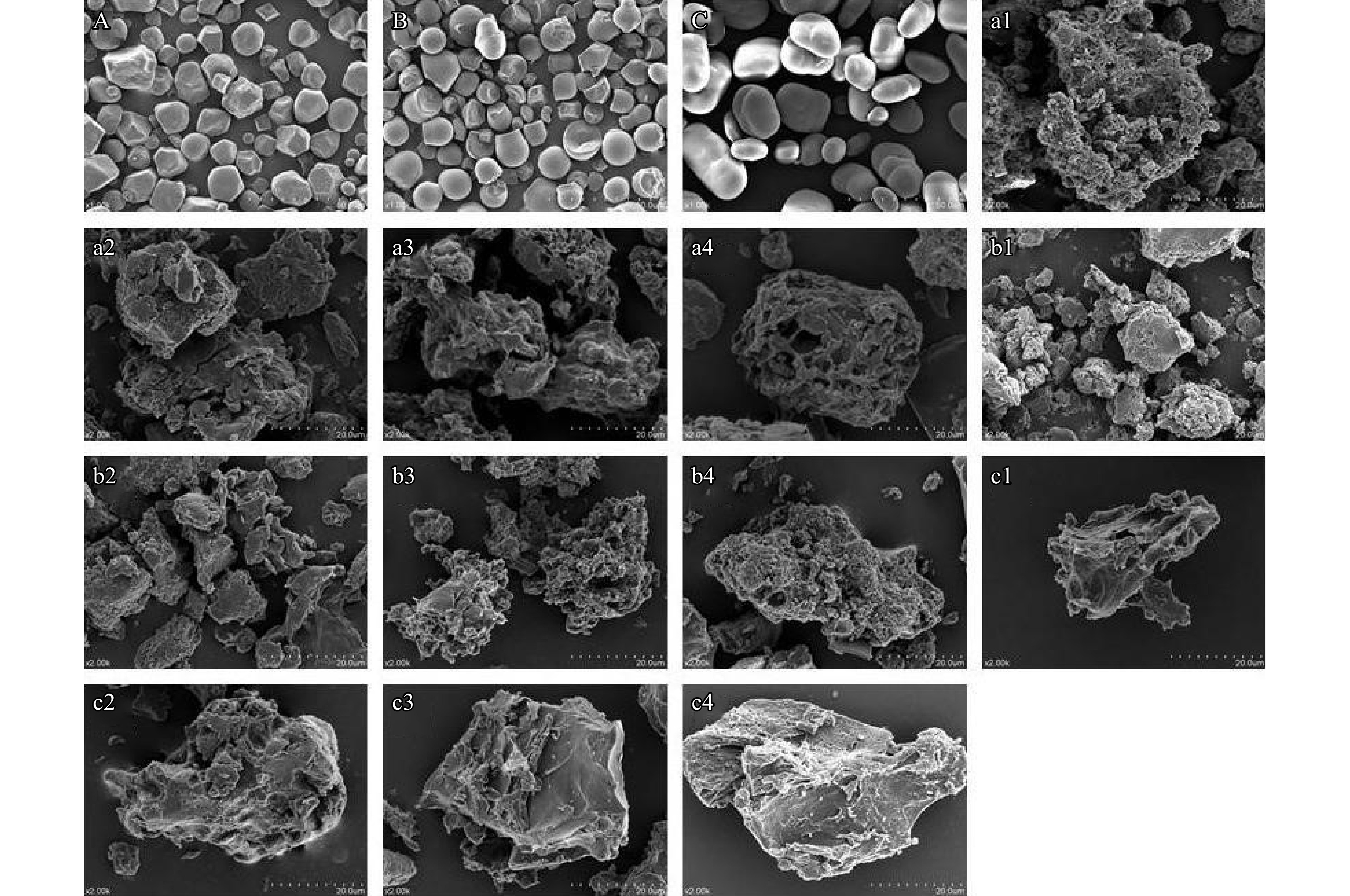
 下载:
下载:
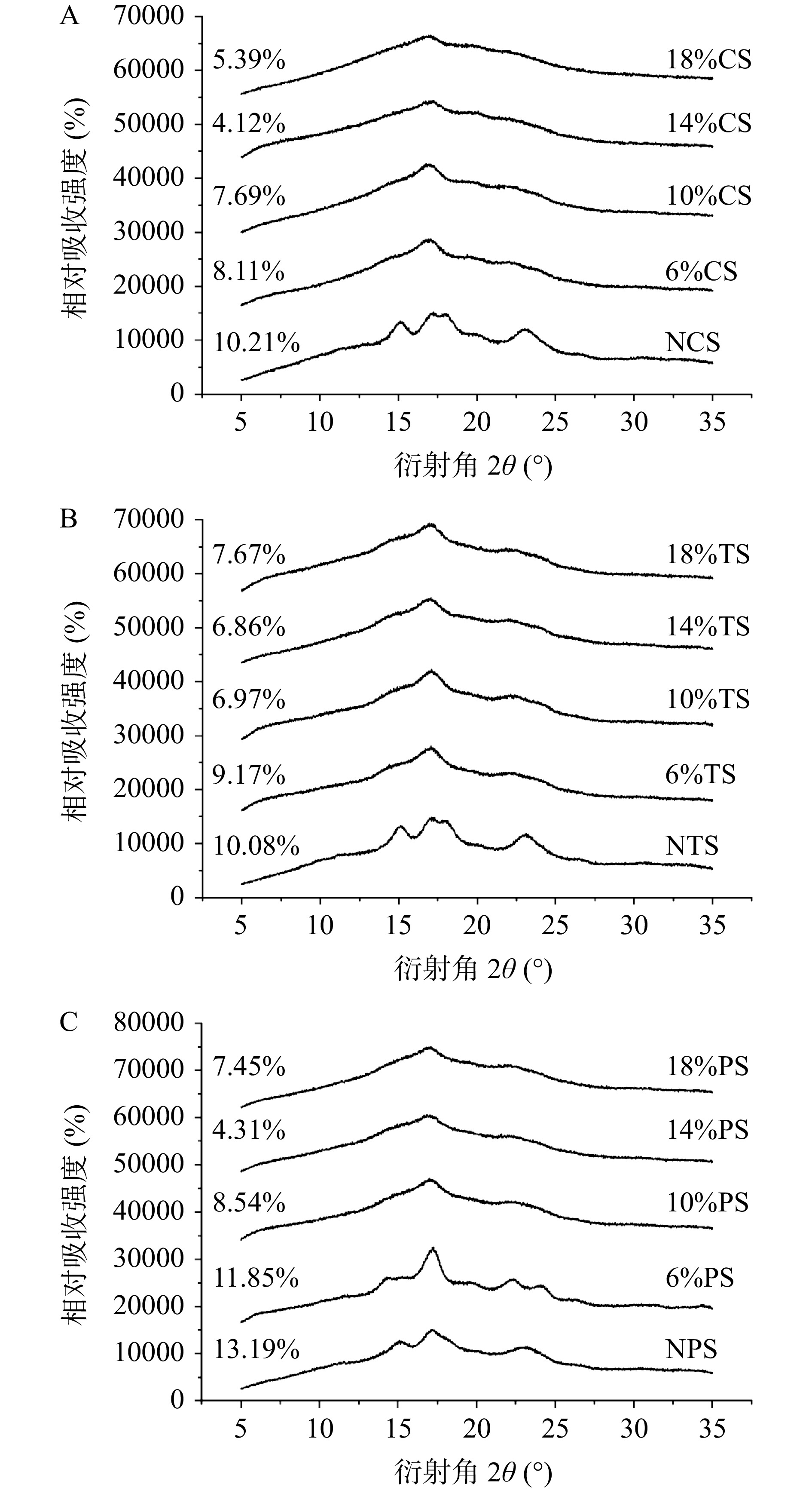
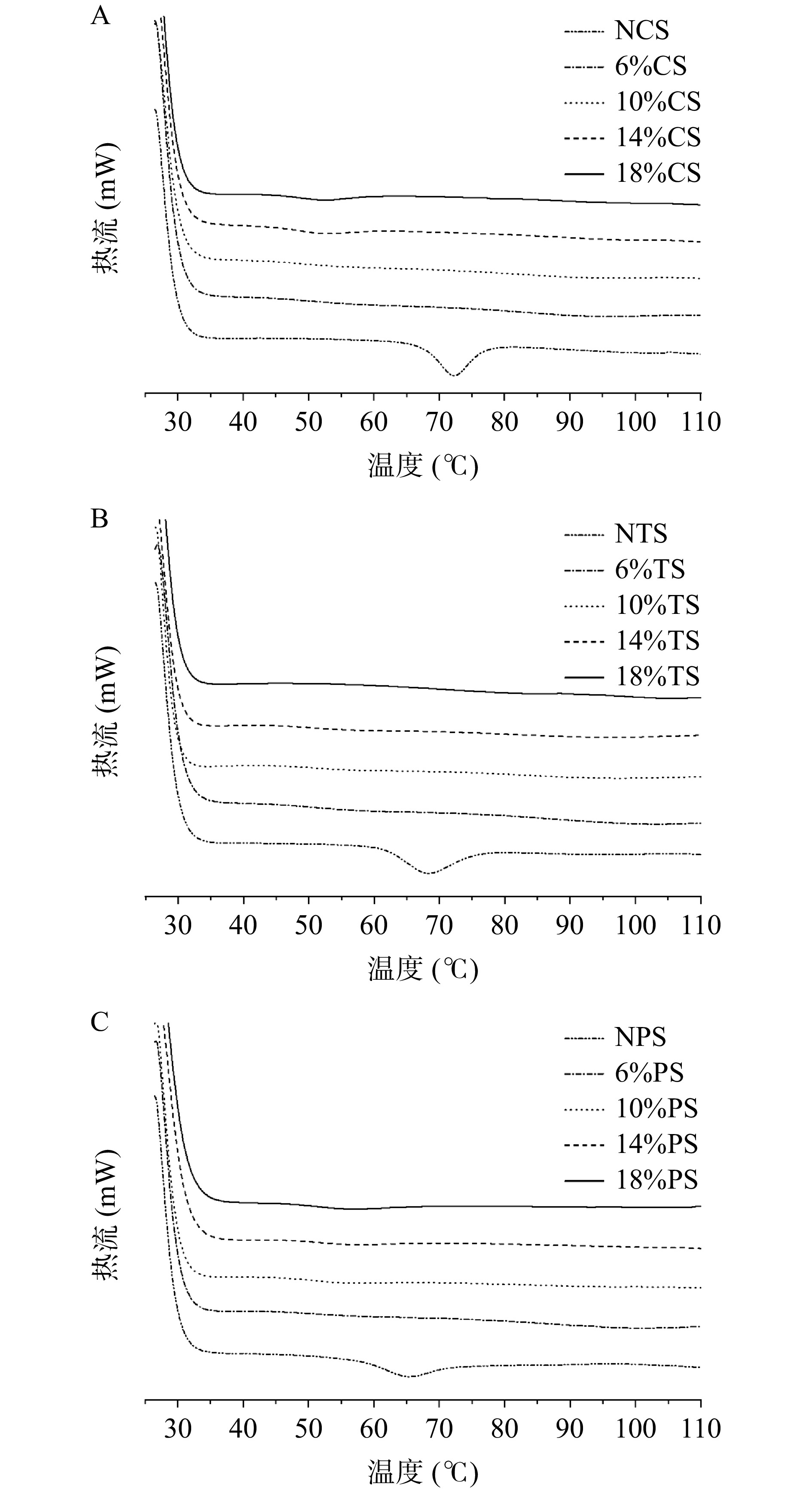
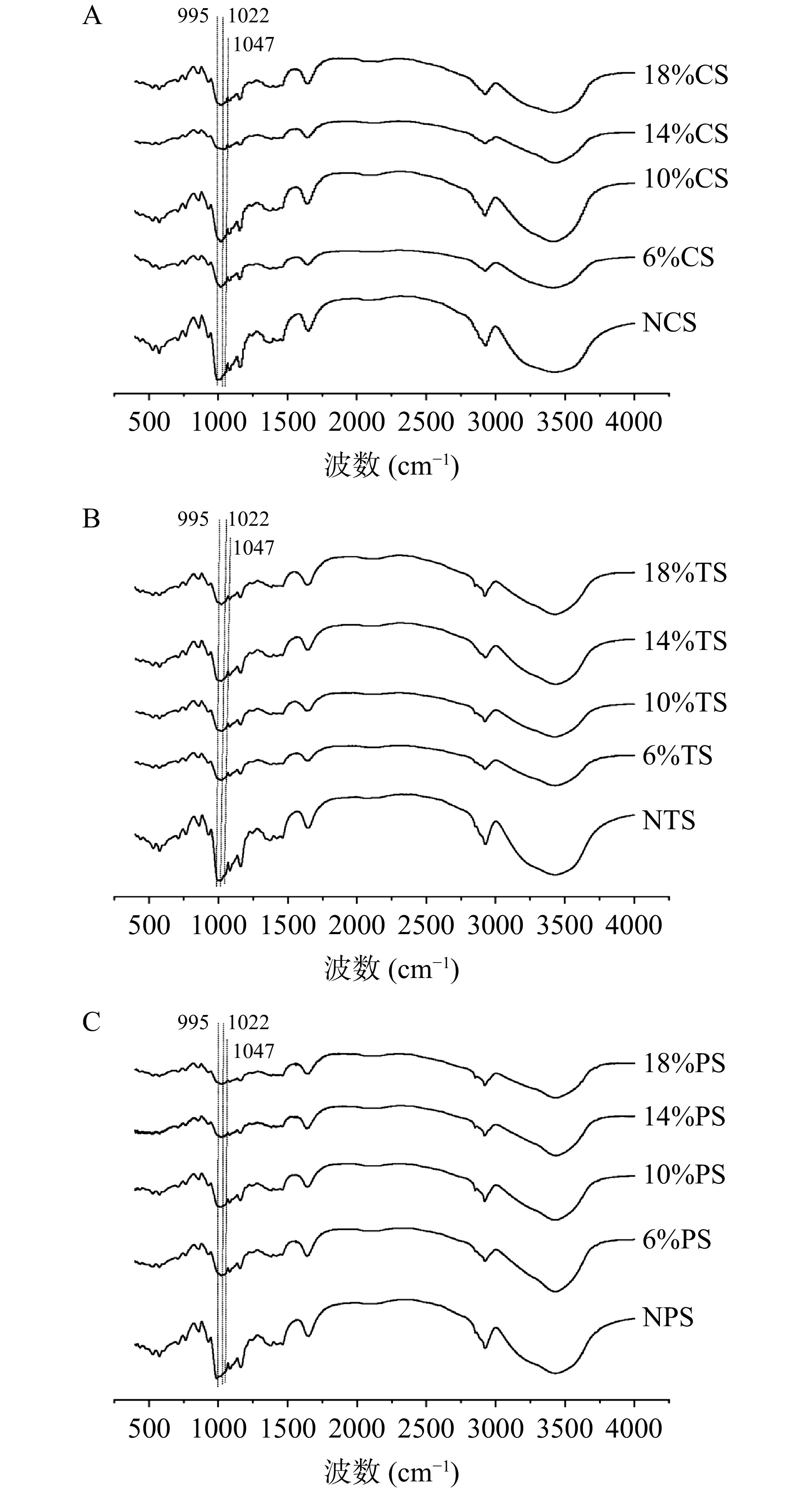
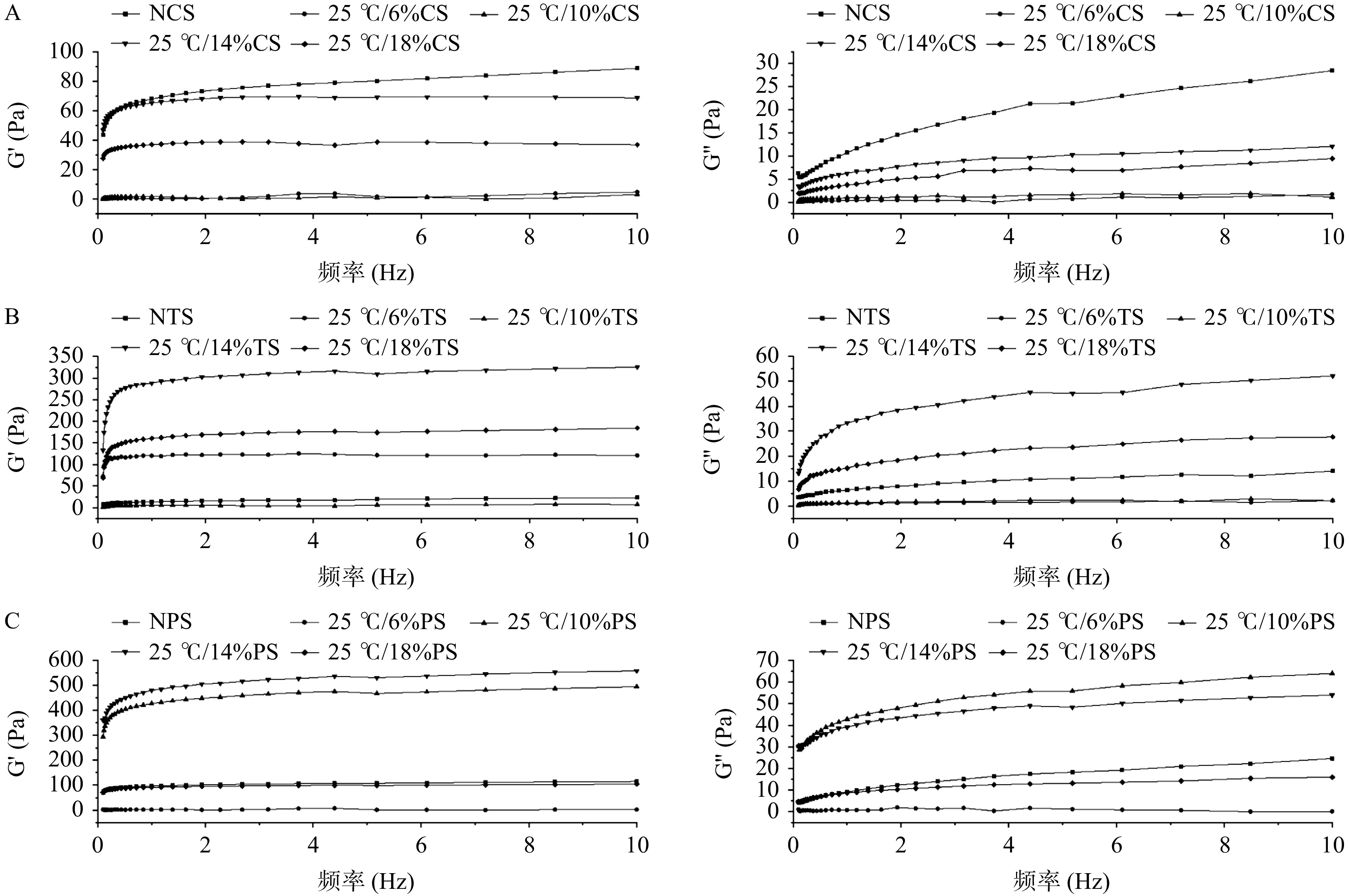
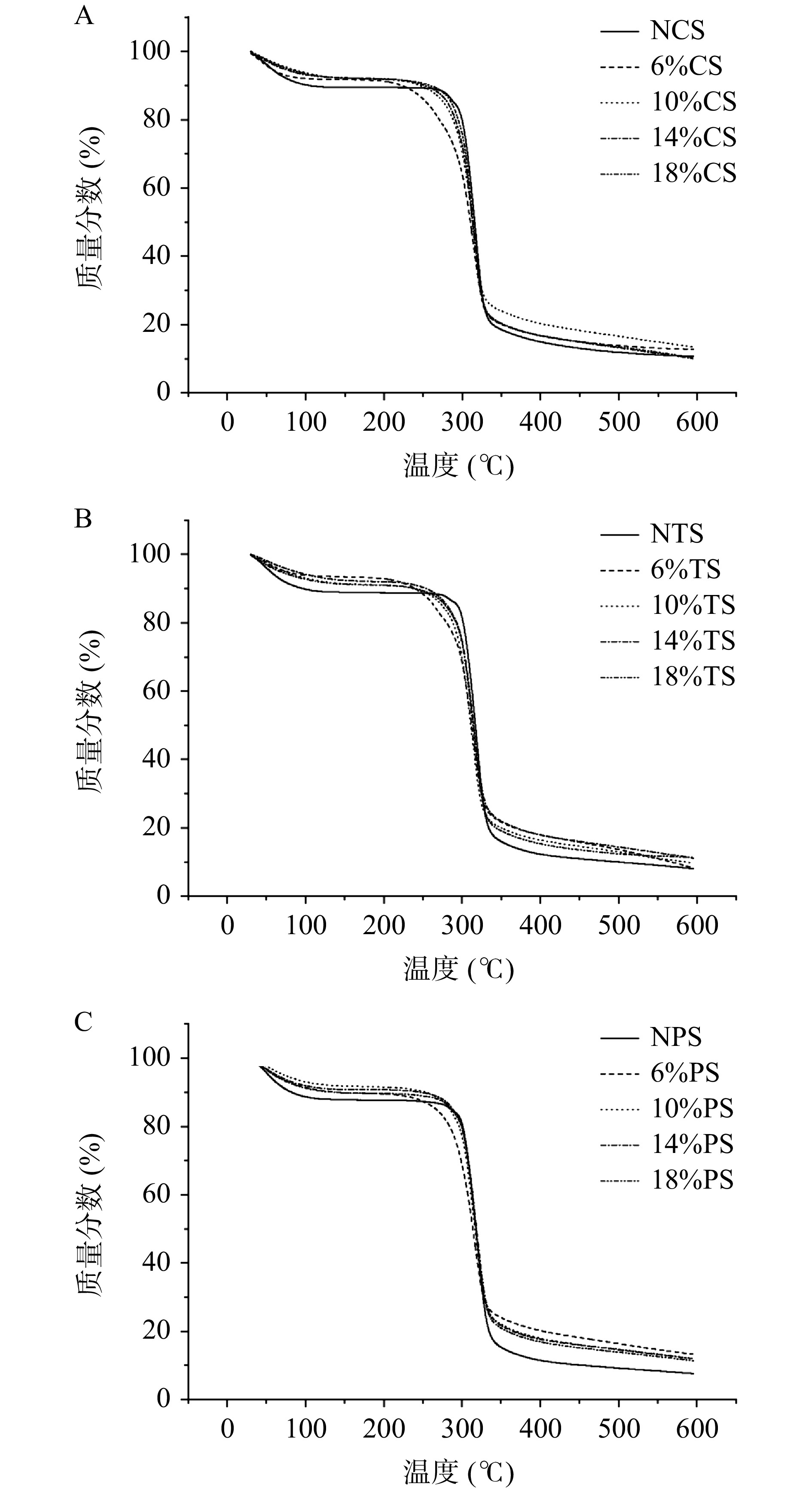
 下载:
下载:



